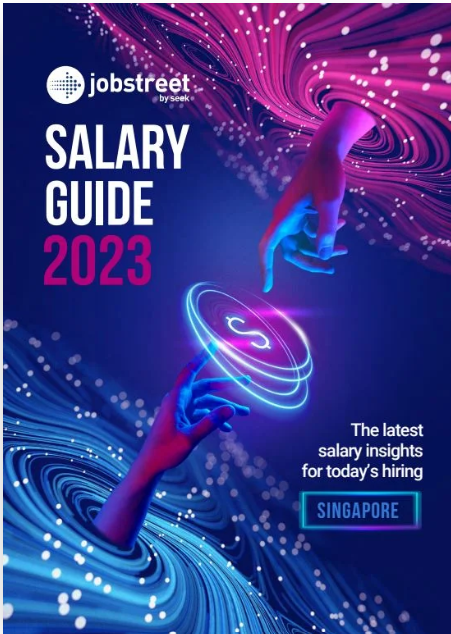
A Cover letter is a one-page document attached with your resume; it acts as your introduction statement. Here is all you need to know about making the perfect cover letter. here some cover letter tips.
“When opportunity presents itself, don’t be afraid to go after it.” –Eddie Kennison.
I hope that those reading this article will, at least once in the coming days, get an opportunity to present themselves with a cover letter. I’ll delve straight into explaining to you more about this component of your job application.
A cover letter is essentially your introduction statement to your employer, playing a pivotal role in capturing their attention. It’s a one-page document that is attached to your resume, consisting of three to four paragraphs highlighting your qualifications, experiences, and motivations, adding additional context to your resume.
Another approach to writing a cover letter would be to highlight your value proposition, i.e., what sets you apart from the other candidates and what value you’ll add to the company.
Though both are different approaches, there isn’t a hard-and-fast rule regarding cover letters, and writing one would require a blend of strategy and authentic emotional artistry. Now that we know the content of what goes in a cover letter, let’s understand how you could polish it further to make a lasting impression.
Why should we write a cover letter?
Part of the answer was covered in the introduction. That is, to provide additional context to your resume, Bridging the gap between your resume and the hiring manager, you get to introduce yourself briefly before any interview is conducted, giving you an edge over the applicants as your resume is personalized towards the company, showcasing why you are a better fit and your relevant experiences, skills, and achievements.
Moreover, it conveys your enthusiasm for the position and the company, demonstrating a genuine interest.
There are many intricacies you need to keep in mind while crafting a cover letter. The first would be that the paragraph needs to pack a punch. It would set the tone for the entire document, making it a crucial component.
A great cover letter would grab the reader’s attention from the onset.
Consider starting with a gripping anecdote, an astounding statistic, or a riveting question—something that’ll require them to reflect and contemplate. Ensure that the opening is relevant to the industry or the company you are applying to.
By immediately engaging the reader, you can rest assured that they’ll go through your letter, reading with interest.
Albeit you don’t make the mistake that most job seekers do, that is making a generic cover letter that they’ll probably use for multiple applications.
A truly great cover letter would be tailored specifically to the position and company you are applying to. Which could possibly exert oneself, but one must be ready to go the extra mile to stand out from the crowd.
Take your time to research the company’s values, their mission, and its culture. Keep all this information in mind, and then start curating your cover letter. Highlight how your skill set is appropriate for the job. How your experiences align with the company’s needs and goals. Establishing that you have taken the time to understand them and that you have what it takes to get hired for this role.
A great cover letter would go far beyond simply restating the information that could be in your resume.
Instead, it allows you to explain the context of the material provided in your resume. You can further elaborate on your key achievements and experiences, reiterating and highlighting them. You can recall specific factors that contributed to your success and previous accomplishments.
Be sure to quantify your accomplishments whenever possible, and use numbers and metrics to illustrate the legitimacy of your achievements, as it helps to showcase and realize the actual impact you’ve had previously in the workspace.
One fact that is often overlooked by applicants is that employers are looking not just for individuals who fit the skill set and experiences in the job description but also for individuals who truly want to work with them and show enthusiasm and passion for the same. Someone who is in love with what they do would undoubtedly perform better than someone who is just applying for the job but is clearly missing the spirit to stick with it.
Therefore, a cover letter might give you an edge over someone who has more traditional experience simply because you convey your enthusiasm, which they don’t.
Make it a point to share what could potentially set you apart from the others. Authenticity is often the key to getting what you truly desire. Although it’s difficult to express your passion and interest in such a constrained setup, the effort of trying is what counts.
If you are new to the industry and lack direct experience in the industry or whatever role you are applying for, you likely possess some sort of skill set that must comprise some transferable skills that are relevant to your current goal.
Use your cover letter to help show the employer how these skills could be applied to your position. After all, your hiring managers are also people, and there is no harm in trying to help them see your unique value proposition.
Additionally, it would also emphasize your adaptability and willingness to learn new skills and work in a different environment, which is something that isn’t common with employees. Employers value candidates who are versatile and open to growth. It is a skill that is appreciated regardless of the field.
Considering which would fit in the company’s culture is an important consideration while comparing the applicants.
Through your cover letter, you give your resume a persona and make it different from a sheet of paper that only lists attributes that were asked about in the job description. You show your personality and values, which demonstrates to the employer how you’d fit into the company culture and what you could add to the team.
This would be shown through the tone, language, and examples you’ve used in your cover letter.
Now that we know how to write the body and the introduction of the cover letter, let’s focus on the closing paragraph. This is your final opportunity to leave a lasting impression. You must add “call for action” initiatives, like prompting them to schedule an interview or contact you for further discussion.
And no, it isn’t cringy or overbearing; you need to set your mind to the fact that this is a job that you want, and you are doing everything in your power to give a close to “perfect” impression from your side. To go after what you want is nothing but inspirational, so show your confidence, express genuine enthusiasm, and share your vision with clarity.
Before attaching it to your resume, take the time to proofread it, check it time and time again, and fix and polish anything that feels out of place. Be sure to not make small mistakes like spelling and grammatical errors, and ensure that the format is clean and legible.
You could consider asking someone to review your cover letter, as a third person can often catch mistakes that you might have overlooked.
Crafting a truly great cover letter requires a lot of creativity and genuine interest. By incorporating the guidelines outlined in this article—that is, capturing attention with a strong opening to a body that emphasizes your strength and closing on a positive note—you would create a cover letter that stands out from your peers and showcases your unique personality.
Remember that the cover letter is your first opportunity to make a lasting impression, so make it.
May you like :Insider’s Guide: How Smart People Navigate the Reference Check Process
:Standard Chartered US earns 2023 Great Place To Work Certification™ for fourth consecutive year








Leave a Reply